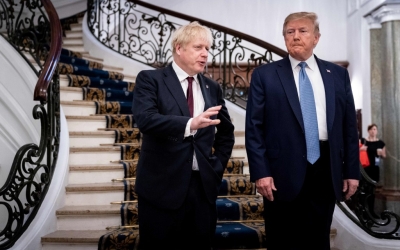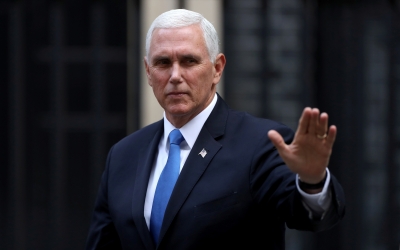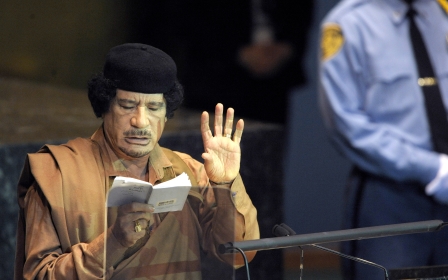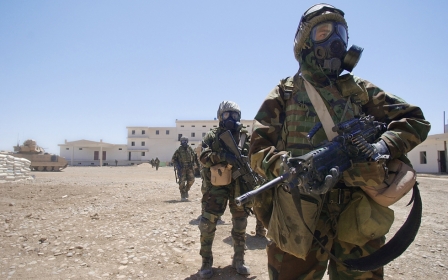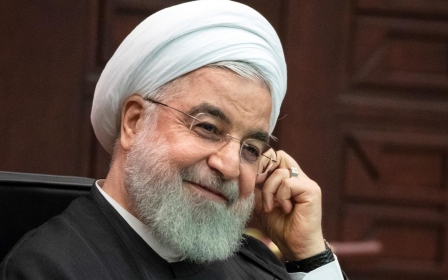'They will be tightened': At UNGA, Trump doubles down on Iran sanctions
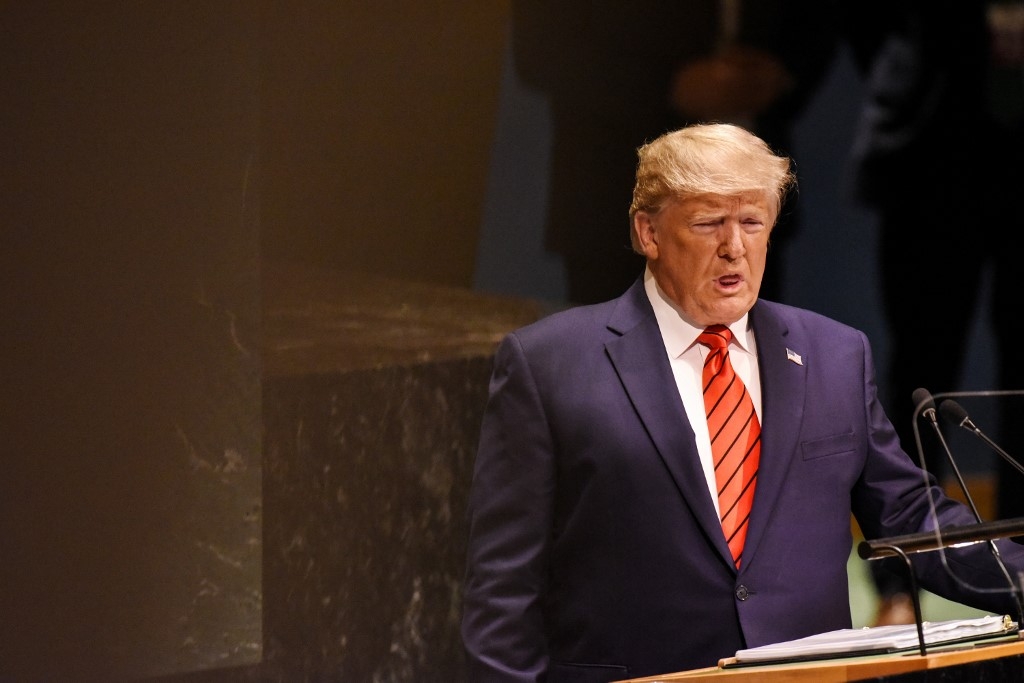
Trump doubled down on his "maximum pressure" campaign against Iran in his speech at the UN General Assembly (UNGA), despite European leaders' recent attempts to press their Washington ally into negotiations for a new Iran nuclear deal.
The United States pulled out of the 2015 nuclear deal last year and has since imposed crippling sanctions on Iran.
"All nations have a duty to act. No responsible government should subsidize Iran's blood lust. As long as Iran’s menacing behavior continues, sanctions will not be lifted. They will be tightened," Trump said during his UNGA speech in New York on Tuesday.
Trump highlighted his belief that the deal did not do enough to curb Iran's path to nuclear weapons, despite its strict limitations on uranium enrichment levels.
Fresh sanctions on Iran, he said, have only resulted in Tehran escalating its "violent and unprovoked aggression".
"One of the greatest security threats facing peace-loving nations today is the repressive regime in Iran," Trump said. "The regime's record of death and destruction is well known to us all."
His statements alluded to several attacks that have taken place in the Gulf over the summer, for which the US and some of its allies have blamed Iran.
Most recently, Iran has been accused of earlier this month carrying out an attack on Saudi oil facilities at Abqaiq that temporarily disrupted energy markets, cutting global oil production by 5 percent.
European calls for negotiations
Iran has denied it was involved in any of the attacks, though on Monday, France, Britain and Germany issued a joint statement saying it was clear Iran was indeed responsible for the attack on the Saudi oil facilities.
The governments also called for a return to the negotiating table.
Their call followed a similar statement from UK Prime Minister Boris Johnson, who earlier on Monday said it was time for countries to hold fresh negotiations on a new nuclear deal with Iran.
Trump initially responded to Johnson's call positively, applauding the idea. But following the European joint statement, Trump made it clear that he was not looking for mediators to de-escalate rising tensions between Washington and Tehran.
During his speech on Tuesday, Trump called for Iranian leaders to "step forward and to stop threatening other countries and focus on building up their own country".
"It is time for Iran's leaders to finally put the Iranian people first," he said. "America is ready to embrace friendship with all who genuinely seek peace and respect."
German Chancellor Angela Merkel plans to meet separately with both Trump and Iranian President Hassan Rouhani on the sidelines of the UNGA meetings, a spokesperson for the chancellor's office said on Tuesday, according to Reuters news agency.
French President Emmanuel Macron also said he would meet Trump on Tuesday to follow up with the US leader about his meeting with Rouhani the day before.
"We have to get back around the table to have a frank and demanding discussion on the nuclear activity, Iran's regional activities, the ballistic missile programme, but also to have a larger approach on what sanctions are," Macron told reporters on Tuesday, without elaborating.
"I hope we will be able to make progress in the coming hours," he said, according to Reuters.
Surprisingly, Pakistani Prime Minister Imran Khan jumped into the fray later on Tuesday, telling reporters that Trump had asked him to mediate with Iran to defuse tensions.
"Trump asked me ... if we could de-escalate the situation and maybe come up with another deal," Khan said after meeting both Trump and Rouhani on the sidelines of the UNGA, Reuters reported.
But as European leaders seek to defuse tensions between Washington and Tehran, Trump also said on Monday that he had no intentions of meeting with Iran's Rouhani during the UNGA meetings this week.
A senior Iranian official shot back at talk of fresh negotiations on Monday, telling Reuters that Tehran will "never renegotiate a deal that took us years to reach".
"Iran's leadership supports diplomacy, but if Americans want to ease tension, they should lift sanctions and end pressure on Tehran," the senior official said on condition of anonymity.
Middle East Eye delivers independent and unrivalled coverage and analysis of the Middle East, North Africa and beyond. To learn more about republishing this content and the associated fees, please fill out this form. More about MEE can be found here.


